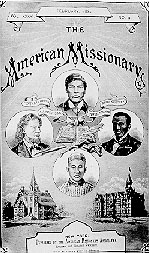Related Research Articles

Soul food is the ethnic cuisine of African Americans. Originating in the American South from the cuisines of African slaves transported to the Thirteen Colonies during the colonial history of the United States, soul food is closely associated with the cuisine of the Southern United States. The expression "soul food" originated in the mid-1960s when "soul" was a common word used to describe African-American culture. Soul food uses cooking techniques and ingredients from West African, Central African, Western European, and Indigenous cuisine of the Americas.

Marblehead is a coastal New England town in Essex County, Massachusetts, United States, along the North Shore. Its population was 20,441 at the 2020 census. The town lies on a small peninsula that extends into the northern part of Massachusetts Bay. Attached to the town is a near island, known as Marblehead Neck, connected to the mainland by a narrow isthmus. Marblehead Harbor, protected by shallow shoals and rocks from the open sea, lies between the mainland and the Neck. Beside the Marblehead town center, two other villages lie within the town: the Old Town, which was the original town center, and Clifton, which lies along the border with the neighboring town of Swampscott.

The Great Migration, sometimes known as the Great Northward Migration or the Black Migration, was the movement of six million African Americans out of the rural Southern United States to the urban Northeast, Midwest, and West between 1910 and 1970. It was substantially caused by poor economic and social conditions due to prevalent racial segregation and discrimination in the Southern states where Jim Crow laws were upheld. In particular, continued lynchings motivated a portion of the migrants, as African Americans searched for social reprieve. The historic change brought by the migration was amplified because the migrants, for the most part, moved to the then-largest cities in the United States at a time when those cities had a central cultural, social, political, and economic influence over the United States; there, African Americans established culturally influential communities of their own. According to Isabel Wilkerson, despite the loss of leaving their homes in the South, and the barriers faced by the migrants in their new homes, the migration was an act of individual and collective agency, which changed the course of American history, a "declaration of independence" written by their actions.

The Atlanta–Fulton Public Library System is a network of public libraries serving the City of Atlanta and Fulton County, both in the U.S. state of Georgia. The system is administered by Fulton County. The system is composed of the Atlanta Central Library in Downtown Atlanta, which serves as the library headquarters, as well as the Auburn Avenue Research Library on African American Culture and History, and 33 branch libraries.
The civil rights movement (1896–1954) was a long, primarily nonviolent action to bring full civil rights and equality under the law to all Americans. The era has had a lasting impact on American society – in its tactics, the increased social and legal acceptance of civil rights, and in its exposure of the prevalence and cost of racism.

The American Missionary Association (AMA) was a Protestant-based abolitionist group founded on September 3, 1846 in Albany, New York. The main purpose of the organization was abolition of slavery, education of African Americans, promotion of racial equality, and spreading Christian values. Its members and leaders were of both races; the Association was chiefly sponsored by the Congregationalist churches in New England. The main goals were to abolish slavery, provide education to African Americans, and promote racial equality for free Blacks. The AMA played a significant role in several key historical events and movements, including the Civil War, Reconstruction, and the Civil Rights Movement.
Wayne August Wiegand is an American library historian, author, and academic. Wiegand retired as F. William Summers Professor of Library and Information Studies and Professor of American Studies at Florida State University in 2010.

The Louisiana State University Press is a university press at Louisiana State University. Founded in 1935, it publishes works of scholarship as well as general interest books. LSU Press is a member of the Association of University Presses.

Cucurbita maxima, one of at least five species of cultivated squash, is one of the most diverse domesticated species. This species originated in South America from the wild subspecies Cucurbita maxima subsp. andreana over 4,000 years ago. Cucurbita maxima, known for modern varieties as Hubbard, Delicious, Marblehead, Boston Marrow, and Turks Turban, originated in northern Argentina near the Andes or in certain Andean valleys. Secondary centers of diversity include India, Bangladesh, Myanmar, and the southern Appalachians.
The Jim Crow laws were state and local laws introduced in the Southern United States in the late 19th and early 20th centuries that enforced racial segregation, "Jim Crow" being a pejorative term for an African American. The last of the Jim Crow laws were generally overturned in 1965. Formal and informal racial segregation policies were present in other areas of the United States as well, even as several states outside the South had banned discrimination in public accommodations and voting. Southern laws were enacted by white-dominated state legislatures (Redeemers) to disenfranchise and remove political and economic gains made by African Americans during the Reconstruction era. Such continuing racial segregation was also supported by the successful Lily-white movement.
The civil rights movement (1865–1896) aimed to eliminate racial discrimination against African Americans, improve their educational and employment opportunities, and establish their electoral power, just after the abolition of slavery in the United States. The period from 1865 to 1895 saw a tremendous change in the fortunes of the Black community following the elimination of slavery in the South.
The Southeastern Library Association (SELA) is an organization that collaborates with different library associations within the Southeastern United States, including Alabama, Arkansas, Florida, Georgia, Kentucky, Louisiana, Mississippi, North Carolina, South Carolina, Tennessee, Virginia, and West Virginia.
Blyden Jackson was a Black American academic, essayist, and activist.
Arthenia J. Bates Millican was an American poet, short-story writer, essayist, and educator whose published writings include the books Seeds Beneath the Snow (1969), The Deity Nodded (1973), and Such Things from the Valley (1977).
The Greenville Eight was a group of African American students, seven in high school and one in college, that successfully protested the segregated library system in Greenville, South Carolina in 1960. Among the eight was Jesse Jackson, a college freshman. As a result of the staged sit-in, the library system in the city integrated.

Tommie Dora Barker was an American librarian and founding dean of Emory Library School in Atlanta, Georgia. She also served as a regional field agent, representing southern libraries, for the American Library Association.
Mattie Herd Roland was Alabama's first African-American librarian. Herd was selected and trained to head the first library for African-American use in Alabama, the Booker T. Washington branch of the Birmingham Public Library, which opened in 1918.
The Carnegie Library School of Atlanta was a training school for librarians in Atlanta, Georgia. Emory University has a collection of the school's files. Originally known as Southern Library School, it opened September 20, 1905, with Anne Wallace as its director. It affiliated with Emory University in 1925 and remained the only nationally accredited library school until 1930. It closed in 1988.
Carrie Coleman Robinson was an African American educator and librarian. Robinson was a founding trustee of the Freedom to Read Foundation and a founder of the Alabama Association of School Librarians.

James John Howard Gregory was an American educator, horticultural businessman, writer, politician, and philanthropist from Marblehead, Massachusetts. Gregory started his career as a public school teacher and later served as a principal. In 1854, he founded a successful seed company, introduced innovations like seed catalogs and developed notable varieties such as the Hubbard squash and cherry tomato. Due to the success of his business, he was known as the "Seed King of Marblehead". Gregory also served as a Massachusetts State Senator (1876–1877) and Marblehead Selectman, advocating for local development and education. A prolific author, he wrote practical gardening guides and supported African American education through the Marblehead Libraries program and school donations.
References
- ↑ Quinn, Mary Ellen (2014). Historical dictionary of librarianship. Lanham, Maryland: Rowman & Littlefield. p. 30. ISBN 9780810878075.
- ↑ Wiegand, Wayne A.; Wiegand, Shirley A. (2018). The desegregation of public libraries in the Jim Crow South : civil rights and local activism. Baton Rouge, Louisiana: Louisiana State University Press. p. 21. ISBN 9780807168677.
- ↑ Battles, David M. (2009). The history of public library access for African Americans in the South, or, Leaving behind the plow. Lanham, Maryland: Scarecrow Press. p. 36. ISBN 9780810862470.
- 1 2 3 Dickerman, G.S. (September 1910). "The Marblehead Libraries". The Southern Workman. 39: 290–299.
- ↑ Phinazee, Annette L. (1980). The Black librarian in the Southeast : reminiscences, activities, challenges : papers presented for a colloquium. Durham, North Carolina: North Carolina Central University. School of Library Science. p. 33.
- ↑ McAllister, Jim (4 June 2012). "Essex County Chronicles: Marblehead's 'Seed King' liked to spread his wealth around". The Salem News. Retrieved 5 April 2020.
- 1 2 3 Jones, Reinette F. (2002). Library Service to African Americans in Kentucky, from the Reconstruction. Jefferson, North Carolina: McFarland & Co. p. 64. ISBN 9780786411542.
- ↑ "Gift from Marblehead's 'Seed King' set to be spruced up". Wicked Local Marblehead. 4 October 2010. Retrieved 5 April 2020.
- ↑ Oulton, Randal (29 December 2005). "James John Howard Gregory". Cook's Info. Retrieved 5 April 2020.
- ↑ Worrell, Sherri Kelley; Flude, Norma Lovett Gregory Kelley. "James J. H. Gregory: a timeline of his life". Victory Horticultural Library. Retrieved 5 April 2020.